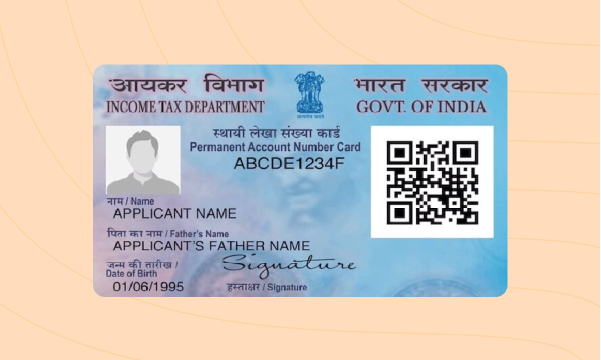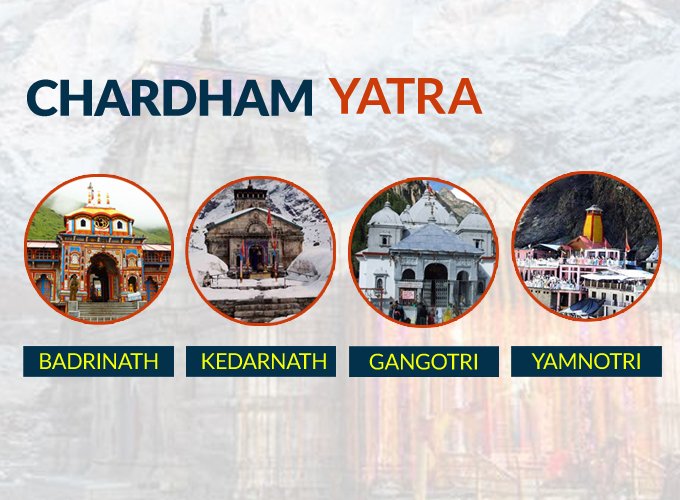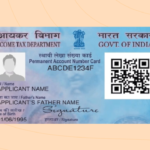The PAN (Permanent Account Number) Card is an important document in India for several reasons. It serves as a unique identifier for individuals and entities in India for tax purposes. It is mandatory to quote the PAN while filing income tax returns, and it is also required for certain financial transactions such as opening a bank account, investing in mutual funds, and buying property.
What Is A PAN Number?
The Permanent Account Number Card is a unique 10-digit alphanumeric identifier that is issued by the Indian Income Tax Department. The PAN card serves as a unique identification number for individuals and entities in India for tax purposes.
PAN card is issued in the form of a laminated card, by the IT Department, who applies for it or to whom the department allots the number without an application.
How To Read A PAN Card Number?
According to the information available on the official website of the IT department, a typical PAN is AFZPK7190K.
First three characters i.e. ‘AFZ’ in the above PAN are alphabetic series running from AAA to ZZZ.
Fourth character of PAN i.e. ‘P’ represents the status of the PAN holder. ‘P’ stands for Individual, ‘F’ stands for Firm, ‘C’ stands for Company, ‘H’ stands for HUF, ‘A’ stands for AOP, ‘T’ stands for TRUST etc..

Fifth character i.e. ‘K’ in the above PAN represents the first character of the PAN holder’s last name/surname.
Next four characters i.e. ‘7190’ are sequential numbers running from 0001 to 9999.
Last character i.e. ‘K’ is an alphabetic check digit.
Why PAN Card Is Required?
The PAN card is also required for individuals to avail certain government benefits such as subsidies and pensions.
The PAN card serves as a valid proof of identity and is accepted as a valid form of identification across India.
The PAN card is required for all financial transactions exceeding a certain limit. For instance, any transaction of Rs. 50,000 or above in the banking system requires quoting of PAN.
In simple words, the PAN card is an important document for individuals and entities in India for taxation, identification, and financial transactions.
PAN enables the department to link all transactions with the department. These transactions include tax payments, TDS/TCS credits, returns of income, specified transactions, correspondence, and so on. PAN, thus, acts as an identifier for the person with the tax department.
Why Is It Necessary To Have PAN?
It is mandatory to quote PAN on return of income, all correspondence with any income tax authority. From 1 January 2005 it has become mandatory to quote PAN on challans for any payments due to the Income Tax Department.
It is also compulsory to quote PAN in all documents pertaining to the following financial transactions :-
1) Sale or purchase of a motor vehicle or vehicle other than two wheeler vehicles.
2) Opening an account [other than a time-deposit referred at point No. 12 and a Basic Savings Bank Deposit Account] with a banking company or a co-operative bank
3) Making an application for the issue of a credit or debit card.
4) Opening of a demat account with a depository, participant, custodian of securities or any other person with SEBI
5) Payment in cash of an amount exceeding Rs. 50,000 to a hotel or restaurant against the bill at any one time.
6) Payment in cash of an amount exceeding Rs. 50,000 in connection with travel to any foreign country or payment for purchase of any foreign currency at any one time.
7) Payment of an amount exceeding Rs. 50,000 to a Mutual Fund for purchase of its units
8) Payment of an amount exceeding Rs. 50,000 to a company or an institution for acquiring debentures or bonds issued by it.
9) Payment of an amount exceeding Rs. 50,000 to the Reserve Bank of India for acquiring bonds issued by it.
10) Deposits of cash exceeding Rs. 50,000 during any one day with a banking company or a co-operative bank.
11) Payment in cash for an amount exceeding Rs. 50,000 during any one day for purchase of bank drafts or pay orders or banker’s cheques from a banking company or a co-operative bank.
12) A time deposit of amount exceeding Rs. 50,000 or aggregating to more than Rs. 5 lakh during a financial year with –
(i) a banking company or a co-operative bank
(ii) a Post Office;
(iii) a Nidhi referred to in section 406 of the Companies Act, 2013 or
(iv) a non-banking financial company
13) Payment in cash or by way of a bank draft or pay order or banker’s cheque of an amount aggregating to more than Rs. 50,000 in a financial year for one or more pre-paid payment instruments, as defined in the policy guidelines for issuance and operation of pre-paid payment instruments issued by Reserve Bank of India under section 18 of the Payment and Settlement Systems Act, 2007 to a banking company or a co-operative bank or to any other company or institution.
14) Payment of an amount aggregating to more than Rs. 50,000 in a financial year as life insurance premium to an insurer
15) A contract for sale or purchase of securities (other than shares) for amount exceeding Rs. 1 lakh per transaction
16) Sale or purchase, by any person, of shares of a company not listed in a recognised stock exchange for an amount exceeding Rs. 1 lakh per transaction.
17) Sale or purchase of any immovable property for an amount exceeding Rs. 10 lakh or valued by stamp valuation authority referred to in section 50C of the Act at an amount exceeding ten lakh rupees.
18) Sale or purchase of goods or services of any nature other than those specified above for an amount exceeding Rs. 2 lakh per transaction.
In case of a minor, a person can quote the PAN of his/her father or mother or guardian provided the person does not have any income chargeable to income-tax.
Any person, who does not have PAN and enters into any of the above transactions, can make a declaration in Form No.60.
It must be noted that quoting of PAN is not required by a non-resident in a transaction referred at point No. 3 or 5 or 6 or 9 or 11 or 13 or 18.
Also, any person who has an account (other than a time deposit referred at point no. 12 and a Basic Saving Bank Deposit Account) maintained with a banking company or a co-operative bank. He will be required to furnish his PAN or Form No.60 on or before 30-06-2017 if he has not quoted his PAN or furnished Form No. 60 at the time of opening of such account or subsequently.
Linking of PAN with Aadhar Number
As per section 139AA in the Income-tax Act, 1961, it is mandatory for every person, who is eligible to obtain Aadhaar, to quote his Aadhaar number while applying for PAN or furnishing return of income with effect from July 1, 2017.












Leave a Reply